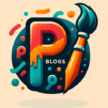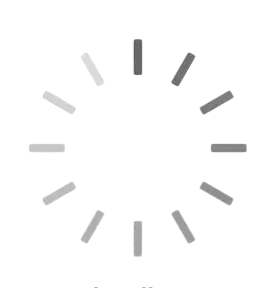Introduction
In today’s fast-paced world, personal growth is more essential than ever. As individuals strive to become the best versions of themselves, one of the most powerful tools at their disposal is reading. This article explores how diving into books can catalyse personal development and propel individuals towards their goals.
- Benefits of Reading
- Mental Stimulation and Stress Reduction
- Reading acts as a workout for the brain, keeping it active and engaged. Moreover, getting lost in a captivating story or immersing oneself in a thought-provoking book can offer a much-needed escape from the stresses of everyday life.
- Knowledge Expansion and Learning
- Books are repositories of knowledge, offering insights into diverse subjects, cultures, and experiences. By regularly exposing oneself to new ideas and information, individuals can continuously expand their understanding of the world.
- Empathy and Perspective-Building
- Through literature, readers can step into the shoes of characters from various backgrounds and circumstances. This fosters empathy and a deeper understanding of human emotions, ultimately broadening one’s perspective on life.
- Setting Personal Reading Goals
- Assessing Current Reading Habits
- Before embarking on a reading journey, it’s essential to evaluate one’s current habits and preferences. This self-awareness lays the foundation for setting meaningful reading goals.
- Establishing SMART Goals
- Effective reading goals are Specific, Measurable, Achievable, Relevant, and Time-bound (SMART). Whether aiming to read a certain number of books per month or delve into a specific genre, clarity is key.
- Creating a Reading Schedule
- Integrating reading into daily routines ensures consistency. Whether it’s dedicating a few minutes before bed or setting aside a cozy weekend afternoon, scheduling dedicated reading time enhances commitment.
- Diversifying Reading Material
- Exploring Different Genres and Formats
- Variety is the spice of reading life. By exploring a range of genres—from fiction to nonfiction, mystery to memoir—readers keep their reading experience fresh and exciting.
- Incorporating Fiction and Non-Fiction
- While non-fiction offers valuable insights and practical knowledge, fiction fuels imagination and creativity. Balancing both genres provides a well-rounded reading experience.
- Seeking Diverse Perspectives
- Reading authors from diverse backgrounds and cultures exposes readers to different viewpoints and narratives, fostering cultural awareness and empathy.
- Active Reading Techniques
- Note-taking and Highlighting
- Actively engaging with the text through note-taking and highlighting helps readers internalise key concepts and ideas. These annotations serve as valuable reference points for future reflection.
- Reflecting on Key Insights
- Pausing to reflect on significant insights or passages allows readers to extract maximum value from their reading experience. Journaling thoughts and reactions deepens understanding and retention.
- Discussing with Others
- Sharing thoughts and interpretations with fellow readers enriches the reading experience. Book clubs, discussion forums, or casual conversations offer opportunities for exchanging perspectives and gaining new insights.
- Applying Knowledge to Life
- Implementing Learnings in Daily Routines
- The true value of reading lies in its application to real life. Whether it’s adopting productivity hacks from a self-help book or applying leadership principles in the workplace, actionable takeaways drive personal growth.
- Problem-solving and Decision-making
- Reading exposes individuals to a myriad of scenarios and solutions, honing their problem-solving skills. Drawing parallels between fictional dilemmas and real-life challenges equips readers with practical strategies.
- Cultivating New Skills and Interests
- Exploring diverse topics and genres opens doors to new skills and interests. Whether it’s learning a new language, mastering a hobby, or developing professional expertise, reading serves as a catalyst for growth.
- Overcoming Challenges
- Time Management and Prioritization
- Balancing reading with other responsibilities requires effective time management. Prioritising reading as a non-negotiable part of daily life ensures consistent progress towards personal growth goals.
- Dealing with Distractions
- In today’s digital age, distractions abound. Setting boundaries, such as turning off notifications or carving out dedicated reading time, helps minimise interruptions and maintain focus.
- Addressing Reading Fatigue
- Just like any other activity, reading can sometimes feel like a chore. Taking breaks, switching up genres, or incorporating audiobooks offer refreshing alternatives to combat fatigue.
- Tracking Progress
- Keeping a Reading Journal or Log
- Maintaining a record of books read, insights gained, and goals achieved provides a tangible sense of progress. Reflecting on past readings also offers valuable perspective on personal growth.
- Celebrating Milestones
- Acknowledging milestones, whether it’s completing a challenging book or achieving a reading goal, reinforces motivation and momentum. Small celebrations serve as fuel for continued progress.
- Adjusting Goals as Needed
- Flexibility is key in the pursuit of personal growth. Periodically reassessing reading goals and adjusting them to align with evolving interests and priorities ensures continued engagement and fulfilment.
- Conclusion
- From enhancing cognitive abilities to fostering empathy and self-awareness, the journey from page to progress is a transformative one. By embracing reading as a catalyst for personal growth and development, individuals unlock a world of possibilities and embark on a lifelong journey of learning and self-discovery.
- Unique FAQs
- How can I make time for reading amidst a busy schedule?
- Prioritise reading by scheduling dedicated time, such as during lunch breaks or before bed.
- What if I struggle to stay focused while reading?
- Experiment with different environments and techniques, such as setting timers or using noise-cancelling headphones.
- Is it better to read physical books or e-books?
- The choice between physical books and e-books depends on personal preference. Some enjoy the tactile experience of flipping pages, while others appreciate the convenience of digital formats.
- How can I remember and apply what I read?
- Engage in active reading techniques, such as note-taking and reflection, and look for opportunities to apply learnings in real-life situations.
- What if I encounter a book that I don’t enjoy?
- Don’t hesitate to set aside books that fail to captivate your interest. Reading should be an enjoyable experience, so explore other options that resonate with you.
Do you like to read more Blog content? Read our blogs at PintoraBlogs








